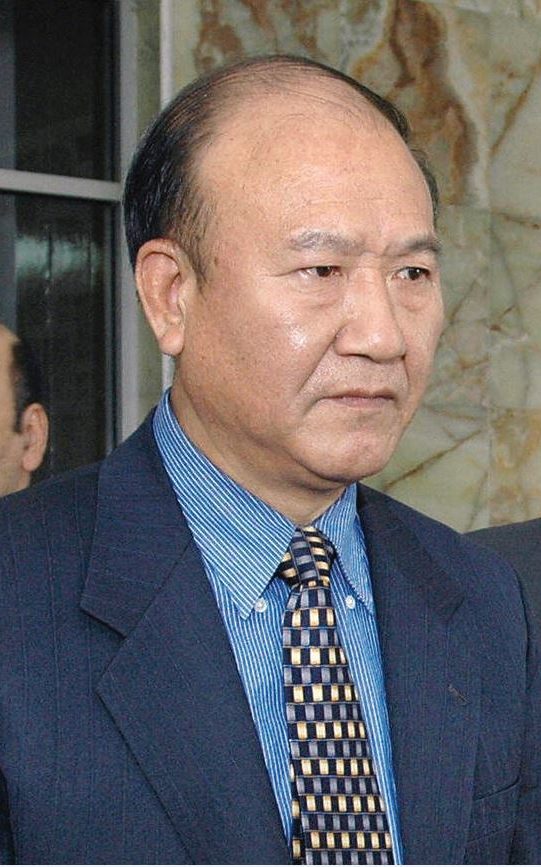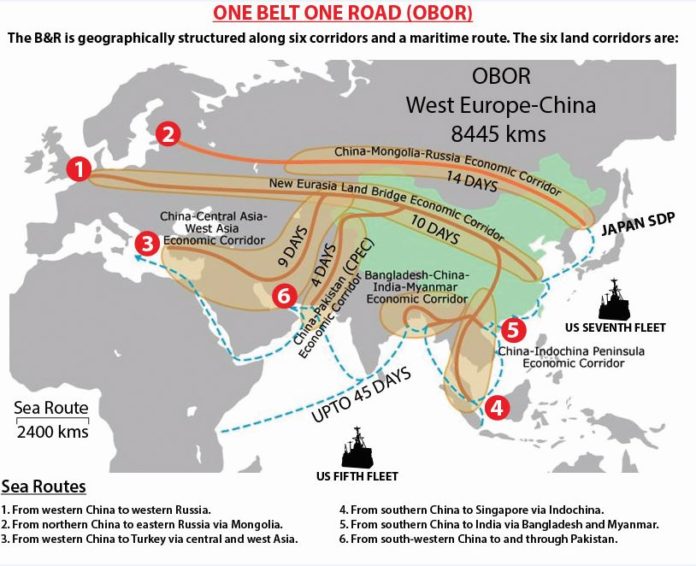Geopolitical changes during the last decades coming with such speed require our security personnel to remain abreast with the changed situation and acquire clarity about the possible consequences for Pakistan. The ongoing globalization has confirmed that there has never been any physical separation of Europe from Asia and the Ural Mountains and Caucasus have rather arbitrarily divided Europe from Asia. The division has been rather ideological, in the technologically advanced globalized world this divide is vanishing. People on both sides of Ural share much of the same culture and history.
Eurasia as a one continent must be acknowledged. The huge Siberian area has now been declared a developmental priority by Russian President Putin. China has developed the Belt and Road Initiative (BRI) comprising of six major routes, five land routes and one sea route, either developed or under development, to connect the Eurasian land mass and make it easily traversable. This landmark scheme envisages a container needing 45 days to reach by sea a European port from China down to only 16 days by land once the BRI is fully working.
These new economic routes are creating new political alliances as well. The Baghdad Pact (and later CENTO) that existed 1955 to 1979 united Iran, Iraq, Pakistan, Turkey and UK with the purpose to deter the extension of communism in western Asia and protect the energy resources from the Soviet Union and China. Today has been reverted. Pakistan is generally in the bad books of the West, so are Turkey and Iran while Russia and China have good and friendly relations with all three countries. We have an evolving though not yet formalized pact between these countries plus Russia minus UK (and US) that includes the intentions of the RCD (Regional Cooperation for Development),the regional socio-economic entity parallel to CENTO founded in 1964 aimed at promoting the development of the member states Iran, Pakistan and Turkey. Adding seven new members it has been replaced by the Economic Cooperation Organization (ECO): Afghanistan, Azerbaijan, Kazakhstan, Kyrgyzstan, Uzbekistan, Tajikistan, and Turkmenistan. With the world changing fast we have to keep the new emerging map in our minds.
BRI has changed conditions for the sea routes as well. While the US can control the Persian Gulf, Red Sea, Arabian Sea, and parts of the Indian Ocean through the 5th fleet and the far east sea lanes including the South China Sea, the Strait of Taiwan and Malacca through its 7th fleet this will keep China at bay, the New Silk Road(s) providing much faster land connections and make the US fleet almost jobless. The US fleets will not be able to interdict the land routes. This does not stop them from being capable of force projection. Coupled with their naval airpower it remains a formidable potential with devastating capability.
Pakistan’s part of the Silk Road initiative, CPEC plans for a corridor stretching from the Chinese border to Pakistan’s deep water ports on the Arabian Sea these date back to the 1950s. These plans motivated the construction of the Karakoram Highway (KKH) starting from 1959 connecting Xinxiang with northern Pakistan. When flying a Alouette-3 helicopter during the earlier phase of constructing the KKH in 1970 I told my Chinese liaison/interpreter who had come direct from Beijing University, “You Chinese are stupid; why for heavens’ sake are you taking the effort and pain to construct a road that comes and goes virtually nowhere?” After a short pause the Chinese answered, “it might be going and coming from nowhere today but while you Pakistanis think in terms of five and ten year dimensions, we Chinese think in a fifty and/ or a hundred years dimensions, you Pakistanis are stupid!” That very interpreter became the Chinese Ambassador to Pakistan in 2003 and when the construction of Gwadar started in earnest, he called me to ask, “now tell me, who is stupid?”
During a talk at the IBA a senior Professor on loan from a US University as well as a reputed economic columnist with a major newspaper called CPEC a “figment of imagination.” Today the CPEC is very much a ground reality force-feeding to the economic uplift of our country. It is providing new and upgraded infrastructure to develop industries, improve our agriculture and open up Pakistan to the world. After being ruled by successive corrupt governments. We are living in interesting times for our country. Though making mistakes Imran Khan is at least honest and has tried to bring the economy back on track. The recent stabilization of the Pakistan Rupee against the US Dollar and the 12000 points rise in the stock Market is a tremendous sign. We missed a crucial opportunity during Gen Musharraf’s time when there was money in abundance because of 9/11 and the subsequent Afghan War, thereafter the 2005 earthquake bringing in billions in UD$ but instead of investing it in the development of industries, his Finance Minister Shaukat Aziz invested it in people friendly consumer items, air conditioners, fridges, cars, mobile phones, etc. claiming it would promote business. We should have invested in power projects, roads, railways, bridges, etc. While it did promote the popularity of the Musharraf regime, in public perception, the ground reality became different. Among other things, like easy credit for purchasing of cars and fridges, etc., it aided addiction to mobile telephone calls, much (almost 80%) of which has no purpose. Two of the four multinational phone companies in our country are been labelled the second and third most corrupt multinationals in the world; one has paid US$950 million in the US for bribery, corruption, money-laundering, etc. the other US$600 million. You just don’t hear or read this because the concerned guilty companies who spend colossal amount on advertisements threaten to withdraw advertisements, our “free media” humbly complies. Incidentally, there is no fault of the local companies unless their local executives behave according to the East India Company (EIC) rules where they would all settle after retirement in the UK.

The power of globalization allows exchange of population that promotes infrastructure development. Pakistan has been very lucky so far if we compare us to other Muslim countries in the Middle East. Libya, Iraq, Afghanistan, Yemen all have suffered and are still suffering so much. While we had our problems and lost people to militancy and terrorism but we have changed course.
With regard to a few questions about the opinion of the Kashmiris, that they on both sides of the LoC would prefer independence and not like to join either Pakistan or India. This is a hypothetical question, there is a scant chance that India would let go any part of its territory and even Pakistan would have to think about its own national interest. However our security primarily is to preserve the water security of our 200 million plus people first.
Political and masses economic relations must also inculcate the same concern for our poverty stricken masses, without an adequate socio-economic infrastructure or good governance. Let us take advantage of the present economic and political dispensation and make the necessary corrections. Things are changing and at least today no Generals (or their brothers) can be called corrupt as they have been in the past. This is the army we dreamed about as cadets. All those who have worn the uniform and wear the uniform today can hold their heads high, we are not hostage to the greed of the few and their brothers, nephews, cousins, uncles, etc. All those who were their close aides know about their extra curricular activities are very much abettors and collaborators in demeaning the uniform we have worn with pride. As collaborators of such khaki collar criminals they are equally guilty. Unless we hold our own accountable and bring them to justice, it will be considered as sham by the masses. To heal this country we must first heal ourselves!
(Extracts of talks given by the defence and security analyst on 12 Nov 2019 to the members of the Security Professionals‘ Association (SPA) at the Pakistan Institute of Management in Karachi).




